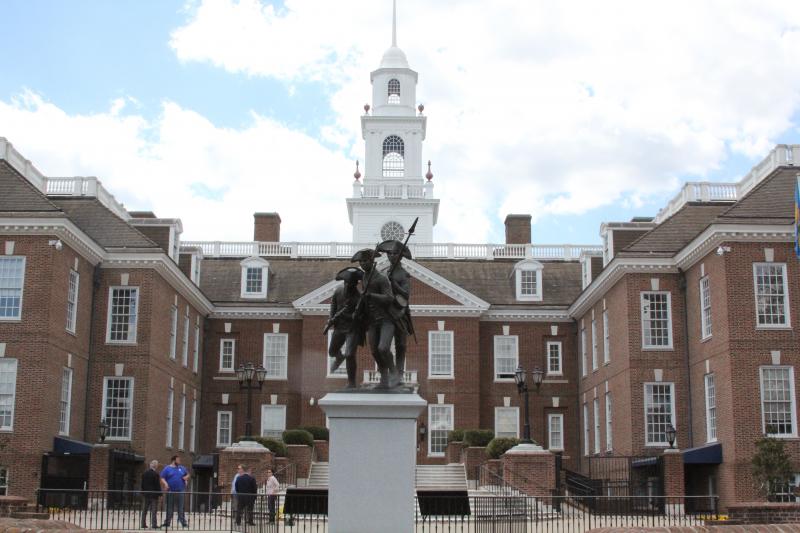Gov. John Carney broke his silence Sept. 20, on a bill that would have allowed medical-assisted suicide in Delaware, choosing to veto the bill as his final term begins to wind down.
“During my time as governor, and since this legislation was first introduced, I have consistently opposed a state law that would allow physician-assisted suicide. I have always recognized, and do today, that this is a deeply personal issue,” he wrote in a letter to the House of Representatives.
Carney said he has listened to legislators, advocates and constituents, and while he appreciates their views, he does not believe a firm consensus has been reached in Delaware or nationally on the difficult issue of physician-assisted suicide.
“I am fundamentally and morally opposed to state law enabling someone, even under tragic and painful circumstances, to take their own life,” he wrote. “I am simply not comfortable with letting this piece of legislation become law.”
He returned the bill to the House without his signature. In order to override Carney’s veto, the General Assembly will need to revote on the bill with three-fifths majority in each chamber. The bill squeaked by the Senate June 25 by one vote, 11-10, after passing the House April 18 by a 21-16 vote with four absent. Neither vote total is enough to override a veto in the House or Senate.
Sponsored by Rep. Paul Baumbach, D-Newark, the bill was over a decade in the making. It was named after Ron Silverio and Heather Block, a Lewes resident who advocated for the bill as she battled terminal cancer. Baumbach said in a statement that he was disappointed by Carney’s decision.
"The final days of a dying individual should not be dictated by the personal beliefs of one individual; instead, our laws must reflect the wishes of the overwhelming majority of Delawareans who support this fundamental right. What disappoints me most is that Gov. Carney inserts his personal views above those of the hundreds of thousands of Delawareans he represents,” Baumbach said.
Baumbach said he is communicating with House and Senate Democratic leadership, all six of whom have been fully supportive of HB 140.
“I am particularly grateful to Speaker [Valerie] Longhurst, who has already voiced her support for a veto override," he said.
Senate leadership also expressed frustration in their own statement.
“Whether via a veto override in 2024 or via new legislation in 2025, there will come a day soon when this legislation becomes law, and Delawareans are afforded the respect and support they deserve in their final stages of life. We are hopeful that the next governor will embrace a renewed commitment of collaboration and partnership between Delaware’s executive and legislative branches and the broader community of stakeholders, so together we can do more to help Delawareans and respect their individual choices and liberties in all phases of their lives,” the statement reads.
House Minority Whip Sen. Brian Pettyjohn, R-Georgetown, who voted against the bill, said he appreciates Carney’s decision.
“His veto statement contains many of the same concerns I had during the consideration and debate,” Pettyjohn said. “I’m happy to see those concerns acknowledged by Gov. Carney, and applaud the deep, thoughtful dialogue that occurred on a very emotional issue.”
House Bill 140 would have made Delaware the 12th jurisdiction in the United States to grant certain terminally ill patients a right to legally obtain medications from their physician to be used in determining the timing of their own passing.
Melissa Steele is a staff writer covering the state Legislature, government and police. Her newspaper career spans more than 30 years and includes working for the Delaware State News, Burlington County Times, The News Journal, Dover Post and Milford Beacon before coming to the Cape Gazette in 2012. Her work has received numerous awards, most notably a Pulitzer Prize-adjudicated investigative piece, and a runner-up for the MDDC James S. Keat Freedom of Information Award.























































